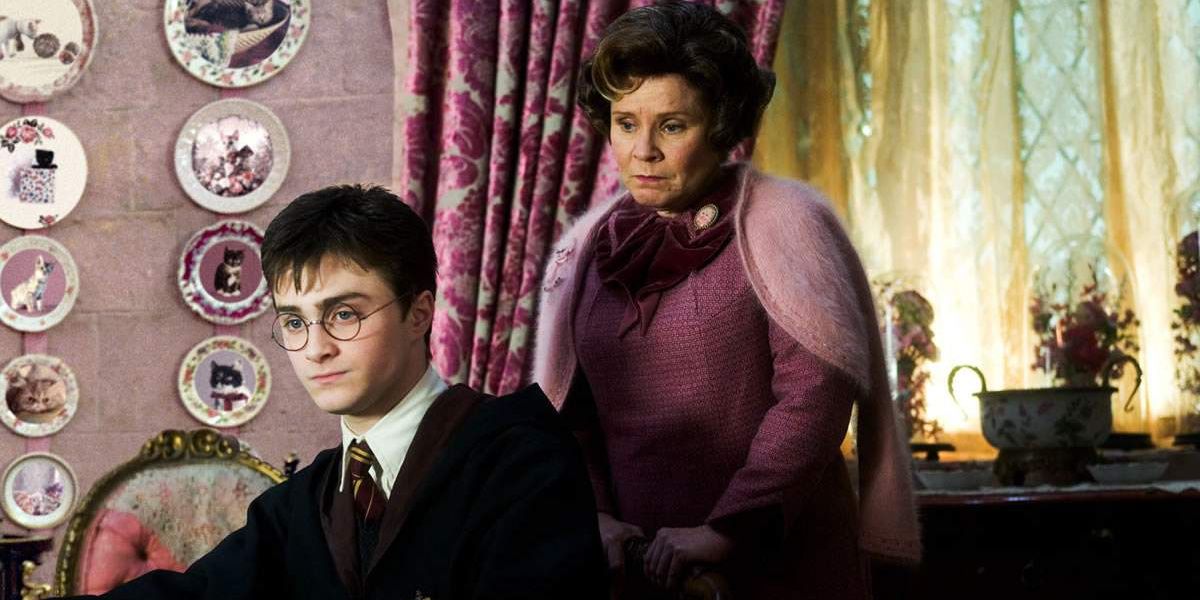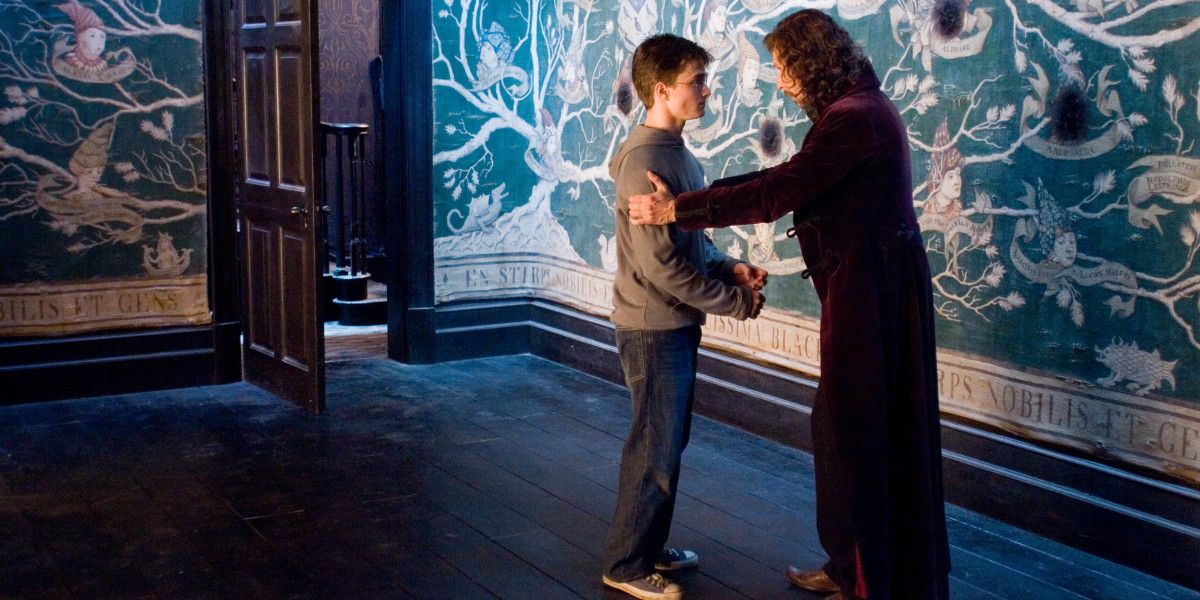The Harry Potter film adaptations have their weaknesses, but every so often they actually improve upon aspects of the original novels. The very best change in the adaptations comes from Harry Potter and the Order of the Phoenix; specifically, the delivery of the iconic line "The world isn't split into good people and Death Eaters."
In the novel, Sirius Black uses floo powder to send his head through the fire to have a discussion with Harry, Ron, and Hermione in the Gryffindor common room in the middle of the night. Harry expresses his concerns about Professor Umbridge being controlled by, or in league with, Lord Voldemort because his scar hurt when she touched his hand in her office. Sirius utters the "good people and Death Eaters" line wryly, with a hint of condescension. He's amused by the simplistic worldview of teenagers and needs to explain to them that not all of their antagonists are directly connected to one specific villain. Sometimes, bad people are just bad, independently of an overlord.
In the film, Sirius shares this wisdom in a different context. Harry's grappling with his involvement in the attack on Mr. Weasley by Nagini, Voldemort's snake, in the Department of Mysteries, and Harry confesses to Sirius that he feels a darkness inside of him and he fears that he is becoming bad. This is when Sirius tells him that everyone has light and darkness inside of them, but what matters is what aspects they choose to act on.
The context of the "good people and Death Eaters" line in the movie is not one of offhanded scolding, but of deep love and compassion, of reassurance and understanding. In the book, the line meant as an indication that the trio is still young and has very little life experience. Even Harry, who has fought and survived true horrors that even most adults have never even faced, lacks a mature understanding of the world at large. He still believes that good and evil are a black and white binary, and there is no middle ground.
Harry still has this naive perspective in the film version, but instead of being harangued for his naivete, Harry is nurtured. Sirius uses this moment to help Harry understand that he's experienced horrible trauma and it's okay for him to feel anger, but he is still a good person because of how he chooses to act. Sirius in this moment gives Harry hope, which he desperately needs in this time of anxious uncertainty.
The movie improves upon the source in this instance because it allows the full wisdom of the moment to actually sink in and become a teachable moment. The book seemingly brushes past it and the trio doesn't have the opportunity to reflect on the implication of Sirius' words. By giving Harry and Sirius a conversation where Sirius comes to Harry's aid emotionally and teaches him with compassion and patience, not only can Harry really take the wisdom to heart, but so can the audience.
One of J.K. Rowling's strengths is her ability to subtly sneak in wisdom in the most mundane of moments. It's a technique that works really well in novels, but the film adaptations were right to pull this iconic line to the forefront to give it an appropriate opportunity to shine and really make an impact. Gary Oldman's delivery of the line adds to how its delivery in the film is actually better than that in the original novel. It's the best change the film adaptions made from the books.



